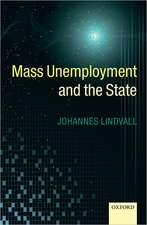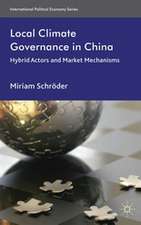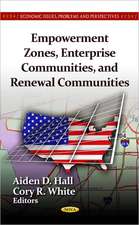Energy: Advanced Reactor Concepts and Fuel Cycle Technologies, 2005 Energy Policy ACT (P.L. 109-58), Light Water Reac
Autor John Grossenbacher, Carl E. Behrens Editat de Thecapitol Neten Limba Engleză Paperback – 30 apr 2010
According to the U.S. Department of Energy's (DOE) Office of Nuclear Energy, nuclear energy provides about 20 percent of U.S. electricity through the operation of 104 nuclear reactors. Combined construction and operating license applications have been submitted for 28 new U.S. nuclear power plants, with eight more expected.
Nuclear power started coming online in significant amounts in the late 1960s. By 1975, in the midst of the oil crisis, nuclear power was supplying 9 percent of total electricity generation. Increases in capital costs, construction delays, and public opposition to nuclear power following the Three Mile Island accident in 1979 curtailed expansion of the technology, and many construction projects were canceled. Continuation of some construction increased the nuclear share of generation to 20 percent in 1990, where it remains currently.
Nuclear power is now receiving renewed interest, prompted by volatile fossil fuel prices, possible carbon dioxide controls, and new federal subsidies and incentives. The 2005 Energy Policy Act (P.L. 109-58) authorized streamlined licensing that combines construction and operating permits, and tax credits for production from advanced nuclear power facilities.
All U.S. nuclear plants are currently light water reactors (LWRs), which are cooled by ordinary water. DOE's nuclear energy research and development program includes advanced reactors, fuel cycle technology and facilities, and infrastructure support. DOE's Generation IV Nuclear Energy Systems Initiative is developing advanced reactor technologies that could be safer than LWRs and produce high-temperature heat to make hydrogen. The Nuclear Power 2010 program is a government-industry, 50-50 cost-shared initiative. It focuses on deploying Generation III+ advanced light-water reactor designs, and is managed by DOE's Office of Nuclear Energy.
Congress designated Yucca Mountain, NV as the nation's sole candidate site for a permanent high-level nuclear waste repository in 1987 amid much controversy. To date no nuclear waste has been transported to Yucca Mountain. In March 2010, the Secretary of Energy filed to withdraw its application for a nuclear-waste repository at Yucca Mountain.
Current law provides no alternative repository site to Yucca Mountain, and it does not authorize the DOE to open temporary storage facilities without a permanent repository in operation. Without congressional action, the default alternative to Yucca Mountain would be indefinite on-site storage of nuclear waste at reactor sites and other nuclear facilities. Private central storage facilities can also be licensed under current law. Such a facility has been licensed in Utah, but its operation has been blocked by the Department of the Interior.
Nuclear energy issues facing Congress include federal incentives for new commercial reactors, radioactive waste management policy, research and development priorities, power plant safety and regulation, nuclear weapons proliferation, and security against terrorist attacks.
37 Chapters
Ch. 38, Other Resources From TheCapitol.Net
Congressional Deskbook: The Practical and Comprehensive Guide to Congress, by Michael L. Koempel and Judy Schneider, ISBN: 1587330970
Live Training, www.CapitolHillTraining.com
Congress In A Nutshell: Understanding Congress
www.CongressInANutshell.com
Congressional Dynamics and the Legislative Process
www.LegislativeProcess.com
Capitol Hill Workshop
www.CapitolHillWorkshop.com
Advanced Federal Budget Process
www.BudgetProcess.com
Ch. 39, Other Resources
Complete Table of Contents at www.TCNNuclear.com
Preț: 282.77 lei
Nou
Puncte Express: 424
Preț estimativ în valută:
54.12€ • 56.29$ • 44.67£
54.12€ • 56.29$ • 44.67£
Carte tipărită la comandă
Livrare economică 14-28 aprilie
Preluare comenzi: 021 569.72.76
Specificații
ISBN-13: 9781587331862
ISBN-10: 1587331861
Pagini: 658
Dimensiuni: 210 x 280 x 34 mm
Greutate: 1.46 kg
Ediția:New.
Editura: Thecapitol.Net,
ISBN-10: 1587331861
Pagini: 658
Dimensiuni: 210 x 280 x 34 mm
Greutate: 1.46 kg
Ediția:New.
Editura: Thecapitol.Net,
Descriere
Part of the government series on energy, from TheCapitol.Net, this text discusses the nuclear energy issues facing Congress including federal incentives for new commercial reactors, radioactive waste management policy, research and development priorities, power plant safety and regulation, nuclear weapons proliferation, and security against terrorist attacks.

















